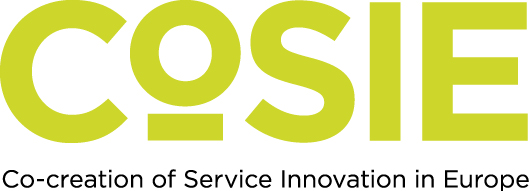Co-creation in Greece: It’s all Greek to me…

Co-creation in Greece is a rather unknown concept and it is very rare to find examples of co-creation not only in the public sector, but in the private sector as well. Co-creation has not been widely explored and arguably has only started to grow, very hesitantly, since 2010. Consequently, there is no relevant legislation, administrative decisions, guidelines and directives with regard to co-creation. Existing legislation is mainly aimed at confronting the lack of transparency and support received by individual citizens and groups in expressing their views and opinions on government decisions and future legislation during the preparation phase.
It is also important to underline that the main concepts used in the Greek context are citizen participation and open/public consultation and deliberation, although it should be stressed that these also face implementation problems. For example, the legislation on local government (3463/2006), which included the participation of citizens in the municipal councils with the right to express their views and suggestions, is not fully operational.
The main problem is whether, and to what extent, citizens’ views and ideas are taken into account. This poses doubts about the arguments that have been put forward with regard to citizen engagement, i.e. although the discussion exists, the influence and power exerted by citizens is very limited when it comes to consultation/deliberation strategies. Public deliberation consists of draft legislation/constitutional changes uploaded onto an open access platform in every Ministry for comments and suggestions from citizens, either from organisations or individuals.
Other initiatives, while trying to change the top-down approach into a bottom-up one, mainly entail the involvement of stakeholders (e.g. local groups/associations, trade unions, NGOs) and not individual users/ citizens. In most cases, it seems that this is an effort to incorporate different views in planning submissions, e.g. “the strategy of smart specialisation” or “community-led local development”. This means that this is actually a consultation discussion in order to submit a national or usually a local plan or strategy for future activity. Despite the importance of such initiatives, it seems that it is difficult to present them as co-creation/co-production examples and could more accurately be described as consultation/deliberation or, in some cases, as participation strategies.
Other initiatives can be found as part of public competitions. For example, citizens were asked to submit their ideas and suggestions for improving the public transportation system as part of a project in Greece’s second largest city, Thessaloniki. However, while users were part of the process, it is not yet known whether the best ideas will be implemented in subsequent phases. Other examples can be found among Greek municipalities (e.g. Korydallos, Athens, Ioannina, Heraklion of Crete, and Thessaloniki), but in general, co-creation initiatives are rather sporadic and fragmented, while in other cases they come from civil society with no or minimum participation from the public sector.
Bearing all this in mind, some organisations such as the GFOSS – Open Technologies Alliance, which is a non-profit organisation founded in 2008 comprised of 35 Universities and Research Centres, have made certain policy recommendations with regard to open data, transparency, ICT and co-creation. Among those, the most important ones in relation to co-creation are the following:
- Transparency and the right of each citizen to know how the views expressed during the public discussion/deliberation of the draft legislation has influenced the final outcome;
- Establishment of a control and observation system of governmental work in order to avoid malfunctions and lack of collaboration in overcoming obstacles in the process of its implementation;
- Incorporation of classes in open technologies at every level of education. Each citizen’s participation in social, political and economic life should include familiarisation with new/open technologies not as a consumer, but as a co-creator and co-modulator;
- Organisation of a series of inter-sectoral and multi-disciplinary actions with regard to the familiarisation and utilisation of open data, technologies or software with a particular focus on the benefits of open technology/ data and wide dissemination. This will help to understand the importance of open technologies/data in co-design, co-creation, and co-decision at a local and national level.
This means that there are many steps to be taken within the Greek context before one can argue that co-creation is actually growing in the public sector. Hence, the CoSIE project is a unique opportunity to pose the appropriate questions and create fruitful ground in order to move forward.
Writer:
Alexandros Sakellariou, Panteion University of Social and Political Sciences
